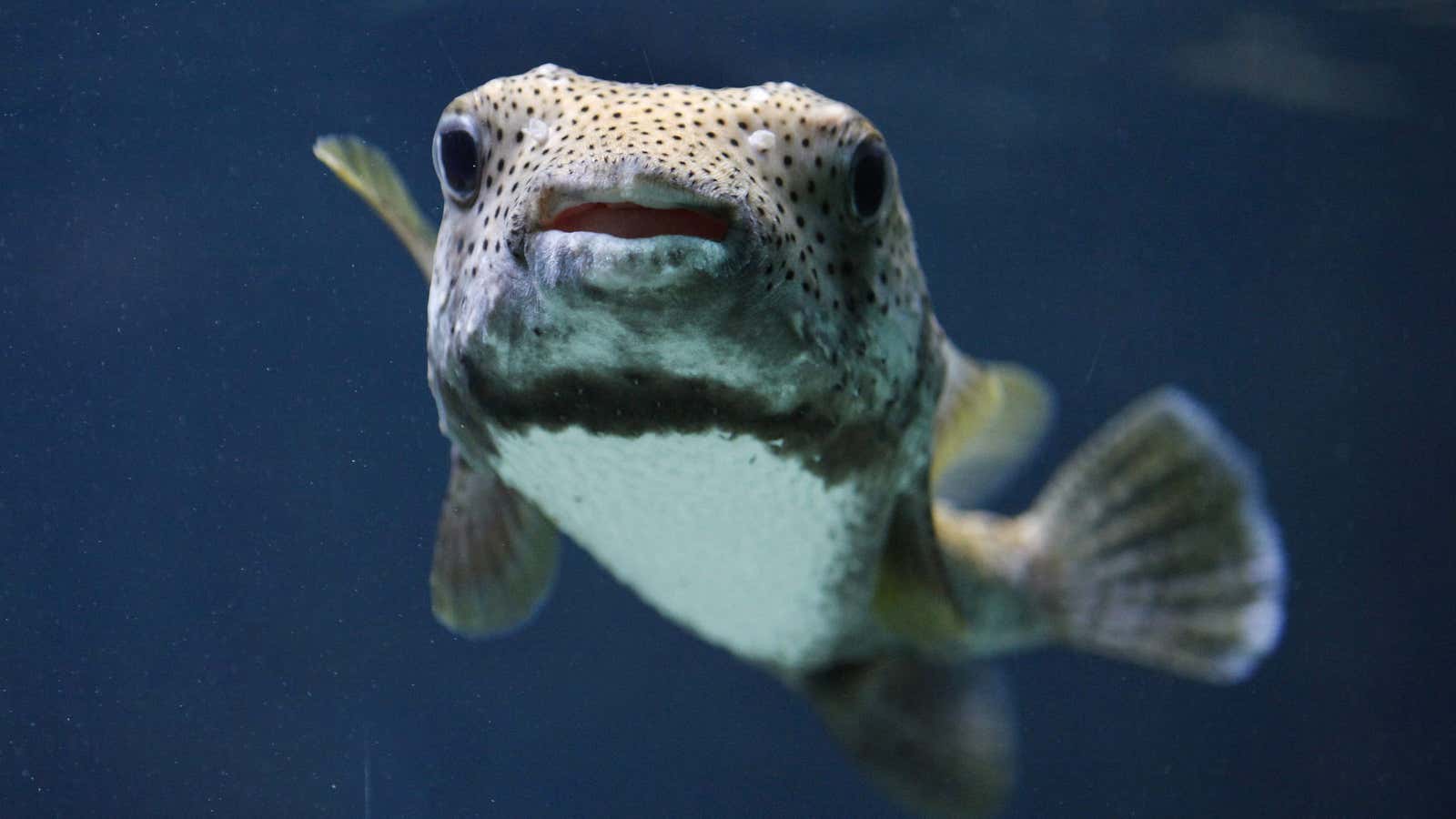Humans are generally pretty unimpressed with fish. From the popular myth that goldfish only have a three-second memory to stereotypes of sharks as “mindless killers,” they’re generally considered the simplest members of our extended vertebrate family—most interesting to contemplate when battered, fried, and served inside a taco.
But research suggests fish are far more complex than we give them credit for. And in 2016, several important scientific developments and discoveries began to change the way the public understands the underwater world and its finned inhabitants.
In the book What A Fish Knows, released this past June, ethologist Jonathan Balcombe argues that fish are far more thoughtful and intelligent than we typically imagine. Balcombe, the director of animal sentience for the Humane Society Institute for Science and Policy, describes research that shows fish are capable of experiencing emotions, recognizing individual human faces, using tools, and developing collaborative hunting strategies. (They can also develop emotional bonds with one another—which helps explain this heartwarming viral video of a loyal pufferfish who stays by a friend in need.) The upshot of this research, Balcombe suggests, is that fish deserve far more humane treatment than they’re currently afforded.
New research that made headlines in 2016 supports this argument. In August, a paper in Science rocked the marine-biology community by finding evidence that Greenland sharks live for hundreds of years. The scientists, led by University of Copenhagen’s Julius Nielsen, estimated the age of one shark to be a startling 392 years old. Even with the margin of error—plus or minus 120 years—the shark is believed to have lived for at least a century longer than any other vertebrate on land or sea. In addition, the scientists estimated that it takes a female Greenland shark around 150 years to become sexually mature.
The findings underscore the importance of studying fish and other elusive species, as we may otherwise be operating under false assumptions about how our actions impact their lives.
“The longevity is remarkable, but I hope the public recognizes how important that is with regard to how we manage and conserve Arctic and deepwater ecosystems,” ecologist Aaron Fisk told National Geographic. Because Greenland sharks are so slow to mature and grow, even seemingly small effects on their population can have an impact that lasts centuries.
Not only do some fish live longer lives than we ever imagined—they also have far more sophisticated styles of communication than we used to believe. In October, marine biologist Steve Simpson unveiled new research into the surprising complexity of cod conversations. (The research has not yet been published in a peer-reviewed journal.) Cod use their swim bladders to make an array of sounds with different meanings, from warning others of approaching predators to wooing nearby mates. But, even more impressively, Simpson says they appear to have accents.
“The American sounds are deeper, short thumping sounds, while the European ones are higher in frequency and the growls are more prolonged,” Simpson told Wired. “This suggests that regional dialects may exist, such as are seen in birds and mammals—including humans!”
Given all that we’ve learned about their anatomy, behavior, and culture, 2017 is a going to be a good time to begin reconsidering the way we treat fish—particularly when it comes to practices like poisoning reefs with cyanide to catch fish for our aquariums and scraping the seafloor to feed our insatiable hunger for fish.
“Fish are collectively the most exploited group of vertebrates on Earth, and their habitats are beleaguered by human activities,” Balcombe said in an interview earlier this year. “I hope that by coming to understand fish better, many people will change their relationship to fish from one of complicity in their exploitation to one of respect and protection.“
